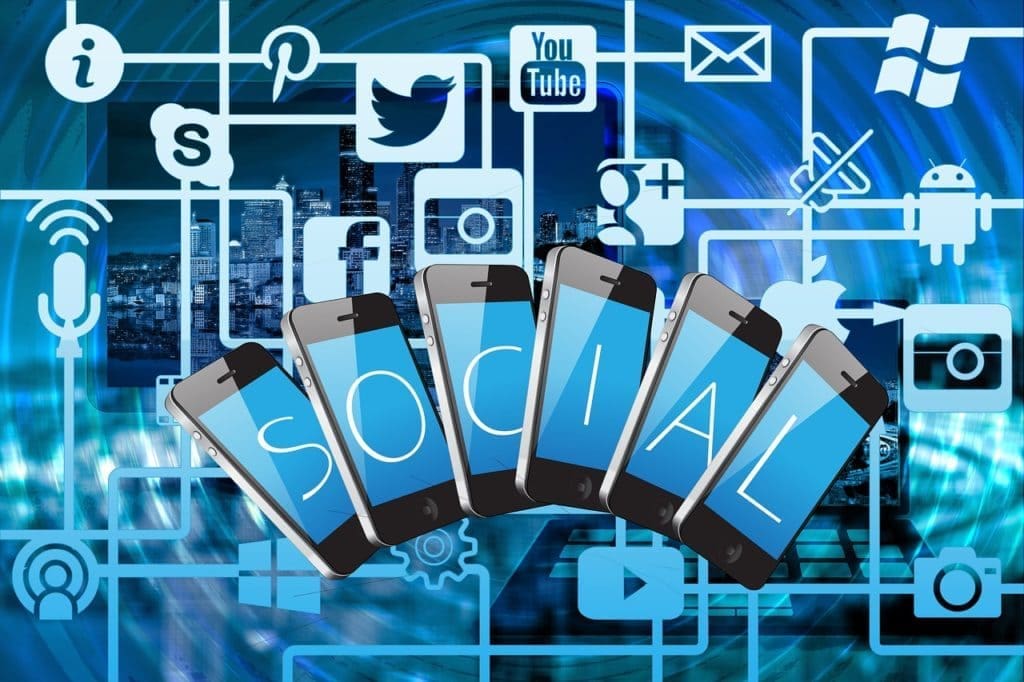Millennials are now the dominant age group in the workplace, with 35% of American workers belonging to this demographic. This holds significant implications for modern business practices. This generation has a distinct set of expectations when it comes to interpersonal interactions in the workplace, and will become dissatisfied if they aren’t met.
These individuals are the first group to have grown up with social media. Anyone employing millennials may wonder how their attitude to communication – and to social media in particular – is likely to shape their behavior. Specifically, you might be concerned with how their preferences will impact your business.
So, how does social media affect the average millennial’s work performance?
- Social media can reduce employee productivity
Perhaps the most obvious consequence of widespread social media use is diminished productivity. According to a study by Udemy, 78% of millennials report that they use technology, such as social media, for personal activities. Across all age groups, 64% of employees believe that social media has a negative effect on their productivity.
Social media sites, particularly Facebook, represent a major distraction. It’s possible to use technology as a tool to improve productivity, but many people find that it worsens their performance and impairs concentration.
- Social media can lead to a fear of rejection and a tendency to make unhealthy comparisons, which can reduce employee confidence and performance
Studies have shown a strong correlation between social media use and depressive symptoms. Research published in the journal Depression and Anxiety shows that the more time young people spend on social media, the higher their risk of depression.
What mechanisms underpin this link? Researchers speculate that social media encourages unhelpful comparison between oneself and others, which in turn triggers feelings of inadequacy and rejection.
Unfortunately, this phenomenon doesn’t just affect your employees’ personal lives. If they feel inferior and sensitive to rejection, they may not reach their full potential at work.
For instance, if a salesperson tends to compare themselves to others, and worries that they will be seen as incompetent unless they are perfect, they might hesitate to take an assertive approach at work. They might be reluctant to negotiate for a better deal, or ask a client a potentially sensitive question. As a result, they may miss out on an opportunity to provide the client with the right solution for their needs.
If they are afraid of rejection, they will feel deflated every time they don’t manage to close a sale. Given that some rejection is inevitable in the business world, being hypersensitive to others’ opinions will have a serious long-term effect on their success.
- Millennials’ comfort with social media gives them the background knowledge and experience required to market products and services to their peers
Millennials are keen to adopt new technology in the workplace. Their extensive social media experience stands them in good stead for roles in marketing and sales. They understand the importance of building relationships with clients via social media platforms.
According to research, one in three millennials report that blogs are their preferred source of information when making a purchasing decision, and 62% say that engaging with a brand on social media is more likely to make them a loyal customer.
Given that millennials are expected to become the largest generation in America in the next few years, it’s essential that you understand how to market to this demographic. Having a few millennial employees on your team will help you reach this group; they can offer a unique perspective on how best to market to the world’s first generation of digital natives.
- Social media can enhance relationships between employees, which can boost performance
Social media can improve team relationships. A sense of camaraderie can improve performance and promote work satisfaction. Internal social media channels allow employees to share not only important work-related information, but also provide one another with support and encouragement. It’s especially valuable for remote workers, who might otherwise feel disengaged from their colleagues.
Every major social media platform can be used to promote a cohesive workplace culture. For example, you can use a private YouTube account as a video archive and community hub. Employees can upload training videos or tutorials to a channel, and discuss the content in the comments section. Such content is especially valuable for new employees, or those taking on new duties within the company.
Private Facebook pages can also be a great way to share company news and policy updates. If the content reflects well on the company, you could consider making your accounts public.
- Social media might increase levels of employee attrition
According to Margaret Reid, writer for The Word Point, it’s important to note that social media makes it easy to make contact with potential employers across the globe. “Anyone can look for a new job during their lunch hour,” she explains. “And it takes just a few minutes to submit a resume. A dissatisfied worker can look for a new position with little effort.”
The more professional and extensive an employee’s social media presence, the greater their chances of attrition. If they have forged relationships with your competitors, they might be lured away from your organization with a promise of better pay or more exciting duties.
Moreover, dissatisfied employees are inclined to spend more time on social media, and become less productive as a result. Lower productivity is associated with diminished job satisfaction, which in turn may prompt them to look elsewhere. High turnover costs businesses a considerable amount of time and money, so the consequences for your organization may be far-reaching.
- Social media facilitates telecommuting, which can improve performance
Social media makes telecommuting possible for many workers. This is a positive development for businesses, because employees who have the opportunity to work away from the office often report greater job satisfaction and less stress.
Specifically, research shows that telecommuting increases employee loyalty, improves job performance, and reduces exhaustion. It’s especially beneficial for those with complex jobs who are most productive when they can work uninterrupted.
However, this option isn’t suitable for everyone. Some workers find it difficult to maintain firm boundaries between their work and family lives when working from home, whereas others might become distracted when trying to work in busy environments.
How should you handle social media in the workplace?
Millennials are not going to give up their social media. Unless you follow your employees around all day and confiscate their personal devices, your best option is to accept that social media is here to stay, and use it to your advantage in the workplace.
Encourage your employees to make positive contributions to your organization’s social media channels, both privately and publicly. Choose an internal social media platform that is easy to use and appealing, and review your choice regularly; millennials place a high value on having access to the latest technology.
If you are worried that your employees may be using social media networks to search for other jobs, it’s time to take a step back and find the root cause of their dissatisfaction. For example, might your employees be bored at work, or perhaps their job upsets their work-life balance? When you address underlying issues, you won’t have to worry that social media will increase rates of attrition.
Accept that this group prefer instant, relatively informal communication. Older workers, who established their careers when telephone calls were still the most popular way to talk to others, may find their style inappropriate or even offensive.
Clarifying what is and isn’t acceptable in the workplace, and setting out your expectations in official policy documents and handbooks, may help bridge the gap. Social media doesn’t have to lower productivity or performance. When used as a means of transmitting important information and building relationships, it can result in a healthier, more efficient working environment.
Author Bio:


Image credits: Image credits: Image credits






